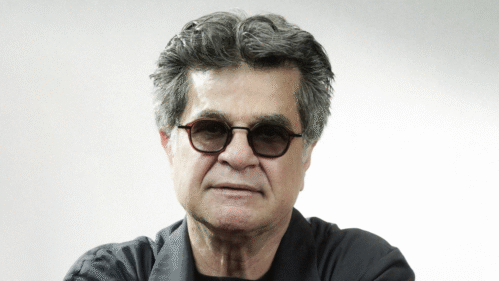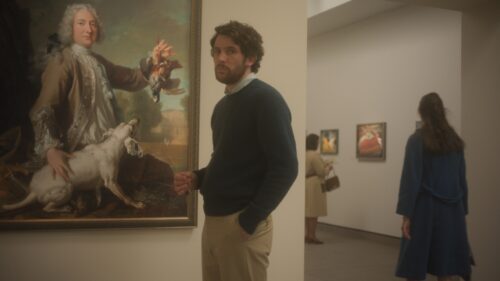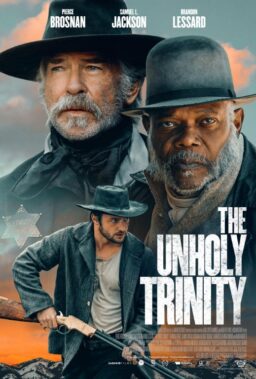Sir Alfred Hitchcock, Knight Commander of the Order of the British Empire, was not giving interviews Monday. His office at Universal Studios said Sir Alfred would, however, have a press conference at 11:30 a.m.Thursday, “after official confirmation has been received.”
How typical of Hitchcock, to wait until he was sure. Knighthood conferred Monday by Queen Elizabeth was long overdue for the most distinguished director in British film history. Hitchcock will be 80 this year and has directed more than 50 films, all but one of them thrillers in a macabre vein.
Perhaps his favorite subjects – murder, blackmail, espionage, voyeurism, necrophilia, vertigo – helped to keep him off the queen’s year-end list of honors for so many years. Other British directors like Sir Carol Reed and Sir Charlie Chaplin were knighted years ago, while Hitchcock, universally considered by film students to be one of the greatest filmmakers of all time, was passed over.
The French, who began in the 1950s to enshrine him as a cultural hero, gave him their Legion of Honor in 1977, and there were mutterings at that time that British knighthood was overdue. The American Film Institute conferred its Life Achievement Award on Hitchcock in March 1979, at ceremonies including his great stars, such as Ingrid Bergman, Cary Grant and James Stewart. “Hitch,” a biography by John Russell Taylor, was published at about the same time, and described Hitchcock as “the most universally recognizable person in the world.” I asked him for his response once and he said, in that imperturbable monotone for which he is famous; “I would say there is some truth in that.” Taylor also described Hitchcock as “a straightforward middle-class Englishman who just happened to be an artistic genius.” In Hollywood, where bizarre dress is common, his British respectability is beyond the bizarre: He dresses, summer and winter, in a black suit, white shirt, black tie, and so is doubly recognizable during his famous walk-ons in many of his films. He is the man walking the two little dogs, or the man waiting for the bus, or the silhouette through the frosted glass window, or both the “before” and “after” figures in a newspaper weight-reduction ad. And he was also, of course, the macabre host of “Alfred Hitchcock Presents,” his long-running series of TV thrillers.
As a maker of films, Alfred Hitchcock’s critical reputation is as secure as any filmmaker in the first 75 years of films. Despite the fact that he worked the veins of thrillers and suspense films – often with a droll comic touch – he is considered to be as great an artist as his late contemporaries from the first generation of talkies, Jean Renoir and John Ford.
Like them, he has refined his storytelling technique until it often seems true that there is not a wasted scene, shot or frame in a Hitchcock film. He puts the pieces together without seams, and he is such a master of emotion that he can describe, without immodesty, his wish to “play the audience like a piano.” He was so much in control of his films that actors sometimes complained they had no leeway to improvise, and Hitchcock happily replied that they had no need to improvise. He elaborated: “All actors should be treated like cattle.”
Hitchcock claims to have no message, but he does have favorite themes that repeat themselves time and again in his work. The most familiar can be called “the innocent person, wrongly accused,” In which a hero (like Cary Grant in “North by Northwest” or Ingrid Bergman in “Notorious”) is thought to be guilty of charges that they are totally powerless to defend themselves against.
That theme, Hitchcock said, went back to his early childhood, when he misbehaved and was sent to the nearest police station with a note from his father. An officer read the note, locked young Alfred in a cell and told him, “This is what we do to naughty boys.” By the time his father came to retrieve him, Hitchcock had acquired a lifelong phobia about police so extreme that he was afraid even to drive a car (“I would immediately die if I were stopped for speeding”).
Hitchcock’s most familiar film is probably “Psycho” (1960), with its famous scene in which Anthony Perkins stabs Janet Leigh to death in a shower. The scene inspired one of Hitch’s most famous exchanges with a viewer, “Dear Mr. Hitchcock,” the fan wrote, “after seeing ‘Diabolique,” my daughter was afraid to take a bath. Now she has seen ‘Psycho’ and Is afraid of the shower. What should I do?”
Hitchcock’s reply: “Take her to the dry cleaners.” He has been the cinema’s “Master of Suspense” since the golden era of his great British-made thrillers, two of which (“The Lady Vanishes” and “The 39 Steps”) were revived only Tuesday at the Parkway. He came to America just before World War II and embarked on a series of great films: “Rebecca,” “Foreign Correspondent,” “Suspicion,” “Shadow of a Doubt,” “Spellbound,” “Notorious” (my personal favorite), “Strangers on a Train.” In the 1950s, he made some of the classics that helped define American commercial film making: “Rear Window,” “The Trouble with Harry,” “Vertigo,” “North by Northwest,” “Psycho.” Hitchcock made two films in the 1970s, the brilliant “Frenzy” (1972), once more about an innocent character wrongly accused, and “Family Plot” (1976). To be knighted by the queen is, of course, the highest honor that can come to a British commoner (and Hitchcock, son of a greengrocer, has always been ferociously a commoner). The actual knighting ceremony will take place later this year, and Hitchcock expects to travel to England so that Queen Elizabeth can tap him lightly on both shoulders with a sword. It is a tribute to our macabre expectations for anything involving Hitchcock that the mental picture of Sir Alfred being tapped by a sword summons up fantasies in which Elizabeth then seizes the sword in both hands and…











